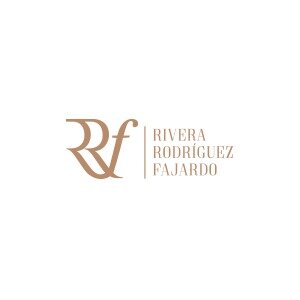Best Art & Cultural Property Law Lawyers in El Salvador
Share your needs with us, get contacted by law firms.
Free. Takes 2 min.
Or refine your search by selecting a city:
List of the best lawyers in El Salvador
About Art & Cultural Property Law in El Salvador
Art & Cultural Property Law in El Salvador encompasses legal regulations and protections pertinent to the nation's cultural heritage and artistic creations. This branch of law addresses the preservation, protection, and restitution of cultural heritage, including artifacts, artworks, and significant cultural sites. As a country rich in history and cultural significance, El Salvador places a strong emphasis on preserving its cultural patrimony while adapting to international standards and conventions related to cultural property.
Why You May Need a Lawyer
There are numerous situations where legal expertise in Art & Cultural Property Law may be necessary. Individuals or organizations may require legal assistance when acquiring or selling art pieces, navigating restitution claims for stolen or unlawfully exported cultural artifacts, understanding intellectual property rights for artists, or dealing with governmental regulations on cultural site preservation. Legal guidance is also crucial for museums and cultural institutions during cross-border exhibitions and for complying with national and international cultural property laws.
Local Laws Overview
In El Salvador, the legal framework for Art & Cultural Property Law is designed to protect and preserve the nation's cultural heritage. Key aspects include:
- The Cultural Property Law: Governs the protection and management of artistic and cultural items that are considered part of the nation's heritage.
- Conventions and International Agreements: El Salvador is a signatory to various international conventions, such as the UNESCO Convention on the Means of Prohibiting and Preventing the Illicit Import, Export and Transfer of Ownership of Cultural Property, which influences local practices and legal obligations.
- Registration and Documentation: Artifacts and artworks considered to be of national importance must be properly registered, with stringent controls on export and transfer.
- Restitution Laws: These laws facilitate the recovery of stolen or illegally exported cultural property.
Frequently Asked Questions
1. What qualifies as cultural property in El Salvador?
Cultural property includes movable and immovable objects of significance such as artworks, artifacts, monuments, and sites that have historical, artistic, or cultural value to the nation.
2. Can I export art from El Salvador?
The export of cultural and artistic objects is subject to strict regulations to prevent the loss of national heritage. Permissions are required, particularly for items considered to be of significant cultural value.
3. What should I do if I discover an artifact on my property?
If you find an artifact, it's important to report it to the appropriate authorities, such as the Ministry of Culture, to ensure proper documentation and protection.
4. Are there laws protecting artists' intellectual property rights?
Yes, artists in El Salvador are protected under intellectual property laws that grant them rights over their creations, including the right to reproduce, distribute, and publicly display their works.
5. How is cultural property defined under Salvadoran law?
Cultural property is defined as tangible items that hold historical, ethnological, or archaeological significance and are protected by national law to preserve cultural heritage.
6. What role does the Ministry of Culture play in protecting cultural heritage?
The Ministry of Culture is responsible for overseeing cultural heritage protection, including maintaining registries of important cultural property and enforcing relevant laws and regulations.
7. How does El Salvador handle stolen cultural property?
There are legal mechanisms in place for the restitution of stolen cultural property, including cooperation with international entities to recover such items.
8. What are the consequences of illicit trade in cultural artifacts?
Illicit trade in cultural artifacts is subject to severe penalties, including fines and imprisonment, to deter the unlawful sale or export of items deemed culturally significant.
9. Can foreign entities acquire cultural property in El Salvador?
Acquisition of cultural property by foreign entities is regulated, often requiring adherence to specific legal criteria and oversight by local cultural authorities.
10. Are there educational programs on cultural heritage protection?
Yes, various programs and initiatives, both governmental and non-governmental, aim to educate and raise awareness about the importance of cultural heritage protection in El Salvador.
Additional Resources
Here are some resources that may be helpful:
- Ministry of Culture: Provides guidance and oversees the management of cultural property.
- UNESCO Office in San Salvador: Offers resources and support for international cultural property agreements.
- National Institute of Heritage Protection: Works on protecting national cultural assets.
- Local Art and Cultural Organizations: Offer community support and outreach programs for cultural heritage awareness.
Next Steps
If you need legal assistance in Art & Cultural Property Law:
- Consult with a qualified attorney specializing in cultural property law who understands the local legal landscape.
- Gather relevant documents or information about the cultural property in question to facilitate legal consultation.
- Reach out to local authorities or the Ministry of Culture for guidance and confirmation of procedures related to your issue.
- Consider attending seminars or workshops to further understand the responsibilities and rights concerning cultural property.
Lawzana helps you find the best lawyers and law firms in El Salvador through a curated and pre-screened list of qualified legal professionals. Our platform offers rankings and detailed profiles of attorneys and law firms, allowing you to compare based on practice areas, including Art & Cultural Property Law, experience, and client feedback.
Each profile includes a description of the firm's areas of practice, client reviews, team members and partners, year of establishment, spoken languages, office locations, contact information, social media presence, and any published articles or resources. Most firms on our platform speak English and are experienced in both local and international legal matters.
Get a quote from top-rated law firms in El Salvador — quickly, securely, and without unnecessary hassle.
Disclaimer:
The information provided on this page is for general informational purposes only and does not constitute legal advice. While we strive to ensure the accuracy and relevance of the content, legal information may change over time, and interpretations of the law can vary. You should always consult with a qualified legal professional for advice specific to your situation.
We disclaim all liability for actions taken or not taken based on the content of this page. If you believe any information is incorrect or outdated, please contact us, and we will review and update it where appropriate.
Browse art & cultural property law law firms by city in El Salvador
Refine your search by selecting a city.











